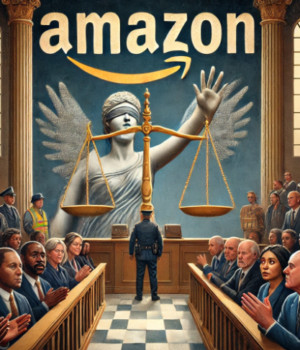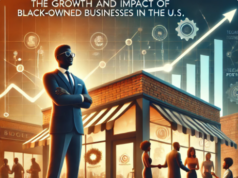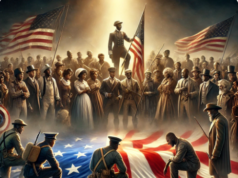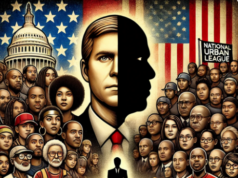# Amazon Lawsuit Highlights Ongoing Safety Struggles for Black Americans
The controversial lawsuit filed by Washington D.C. Attorney General against Amazon in recent months has sparked a nationwide conversation about safety, equity, and corporate accountability. While the case initially revolved around deceptive pricing practices, its wider implications shed light on a critical issue: the pervasive feeling of insecurity among Black Americans in spaces designed for commerce, employment, and everyday activities. This lawsuit is more than a legal battle—it is a stark reminder of how safety remains a luxury, not a guarantee, for Black Americans.
In this post, we’ll delve into how systemic inequities, workplace dynamics, and shopping realities reveal the ongoing challenges faced by Black individuals, using the Amazon lawsuit as a poignant entry point into this important discussion.
—
## The Context of the DC Amazon Lawsuit
The lawsuit brought against Amazon alleges that the company violated anti-trust laws and deceived its customers by manipulating platform fees and price structures. But at its core, this case has broader societal connotations, especially when exploring the intersection of corporate behavior and racial equity.
Amazon remains one of the largest employers in the nation and, arguably, one of the most influential marketplaces. Despite its dominance, it has come under scrutiny for its **questionable treatment of warehouse workers**, many of whom are Black, and for fostering environments where physical safety and emotional security are called into question.
### Why Is This Case Significant?
In analyzing this lawsuit, it’s important to recognize the broader realities that it ties into:
– **Unequal Workplace Safety**: Many minority employees report unsafe working conditions, unrealistic quotas, and unfair practices in corporations like Amazon.
– **Over-Policing and Consumer Disparities**: Concerns remain regarding how Black customers are monitored in retail spaces, both digital and physical.
– **Corporate Accountability**: The sheer magnitude of Amazon’s influence means that individual safety—or lack thereof—for its Black employees and customers becomes a magnified reflection of national societal inequities.
—
## Workplace Safety: A Persistent Concern for Black Americans
One of the darkest revelations tied to corporate practices emerges within Amazon’s warehouses. The issues go beyond grueling hours and lower-than-average wages. For many Black workers, the working environment raises questions of **safety, equity, and discrimination**.
### A Double Burden: Racial Disparities in Labor
Black individuals disproportionately occupy roles that are classified as “essential” or “manual labor,” many of which include high levels of physical strain and low job security. This imbalance is particularly true in Amazon’s warehouses:
– **Physical Risks**: A study from the Strategic Organizing Center (SOC) has highlighted that Amazon warehouse workers experience **serious injuries at twice the industry standard.**
– **Managerial Oversight**: Warehouse workers, particularly Black employees, report higher levels of surveillance, fewer advancement opportunities, and more frequent punitive measures for failing to meet quotas.
– **Psychological Strain**: Many employees describe working conditions that negatively impact their mental health, whether it’s the pressure to push through unsafe workloads or the feeling of being perceived as disposable.
Safety in the workplace is not equally distributed, and for Black Americans, putting food on the table sometimes means enduring physical and emotional harm.
—
## The Consumer Experience: Shopping While Black
Amazon’s digital reach extends far beyond warehouse floors, shaping how Black consumers engage with commerce. The issue of safety infiltrates consumer spaces, both in-person and online.
### Systemic Bias in Retail Spaces
For Black Americans, the experience of being inherently labeled as a “threat” is nothing new. **Shopping while Black** often means being:
– **Profiled and Over-Monitored**: Whether through in-store surveillance or algorithms that flag “suspicious activity,” the reality of unequal treatment persists.
– **Unjustly Accused**: Racial profiling, wrongful claims of theft, and confrontations with security personnel have long haunted the Black shopping experience.
While Amazon’s online platform ostensibly eliminates the physical barriers that spark these interactions, systemic issues do not simply disappear—they evolve. **Algorithmic bias** has become a contemporary method of marginalization in digital marketplaces.
—
## The Broader Issue: Safety as a Luxury, Not a Right
Safety in the United States is often described as a fundamental right. Yet lived experiences for Black Americans paint a distinctly different picture. Whether at work, in retail spaces, or within public systems, safety for Black individuals remains precarious at best.
### The Intersection of Race and Systemic Inequities
What the Amazon lawsuit reminds us is that safety operates like a currency. For marginalized groups, maintaining safety often means sacrificing dignity, opportunity, or equal treatment. Some of the underlying reasons include:
– **Historical Context**: The systemic disenfranchisement of Black Americans has built a lasting framework of inequity.
– **Underrepresentation in Leadership**: Corporations often fail to prioritize inclusivity at decision-making levels.
– **Unaccountable Systems**: Large institutions, from corporations to law enforcement, lack oversight mechanisms that meaningfully protect Black lives.
Safety isn’t just about physical harm; it’s about economic stability, emotional wellbeing, and equal access to opportunity.
—
## A Call for Change: Safety and Equity Must Be Non-Negotiable
Both the DC Attorney General’s lawsuit and the broader concerns it highlights are a wake-up call. **The responsibility does not solely lie within Amazon** or other corporations, but with the systems and structures that allow these conditions to persist.
### Moving Forward: Actionable Steps Toward Equity
If we are to move toward a society where safety and equity are guaranteed for Black Americans, several changes are necessary:
- **Stronger Regulations**: Employers, particularly in industries that disproportionately employ minority workers, must be held accountable for upholding workplace safety standards.
- **Transparency in Retail Practices**: Both physical and online shopping platforms need to take measurable actions to address racial disparities.
- **Investing in Black Communities**: Broad investments in Black entrepreneurship, workforce development programs, and leadership pipelines are critical.
- **Dismantling Algorithmic Bias**: Tech companies like Amazon must implement diverse teams to monitor and neutralize racial bias in automated processes.
—
## Conclusion: Beyond the Lawsuit
The DC Amazon lawsuit serves as a grim reminder that the fight for safety and equity remains ongoing for Black Americans. It reaffirms that safety, when viewed through a broader societal lens, still varies along lines of race and privilege.
Ultimately, the journey ahead requires more than legal battles or corporate apologies. It demands a cohesive societal effort to ensure that safety is no longer a luxury for Black Americans but a basic component of their human experience. **Only then can we claim any semblance of progress.**








